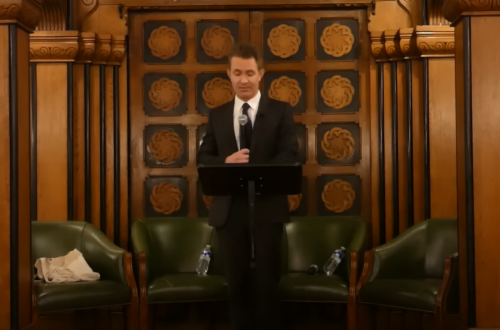This is cross-post from Fathom by Lyn Julius
In the 1930s, Jews from Palestine smuggled date palms out of Iraq and planted them in what became Israel. Supposedly, they never bore fruit as delicious as the original, magnificent, Iraqi dates. As with the dates, so with the people, if we are to believe Rachel Shabi. For the author of Not the Enemy: Israel’s Jews from Arab Lands the Jews of the Orient, or Mizrahim ‘did not grow right’ in their new land.
Shabi, the Israeli-born daughter of Iraqi Jews who settled in England, where she was brought up, has become one of the leading figures of a new post-Zionism since the publication of her book in 2009. She is part of a small group of activists and academics from Arab lands who have, with the encouragement of leftists outside Israel, managed to make the word ‘Mizrahi’ synonymous with ‘discrimination by the Ashkenazi (Jews from Eastern Europe) elite,’ while denying, or, at best, minimising, the discrimination experienced by the Jews in Arab lands as an ‘understandable’ backlash to the unjust creation of Israel.
Shabi and her colleagues think the Mizrahim have been torn away from their Arab brethren by Zionism, which has prevented them from making common cause with the Palestinians. She aligns herself with anti-Zionists who argue on behalf of an ‘Arab-Jewish’ identity as a way of repudiating Jewish nationalism. She presupposes that Jews were just another faith group in the Arab world, that Arabs and Mizrahi Jews are natural allies, and that both are postcolonial victims of the Ashkenazim, who, she posits, lured Mizrahim to Israel under false pretences as a reservoir of cheap labour.
Shabi’s Not the Enemy catalogues the ‘European‘ prejudices which Mizrahi Jewish refugees – at one time a majority, now half of Israel’s Jewish population – encountered when they arrived in Israel in the 1950s and 1960s. ‘Israel’s leadership was perennially paranoid about the possibility of the Jewish state sinking to a Levantine cultural level,’ she writes. She sees every injustice through the prism of identity politics; blue-eyed, privileged Ashkenazim forced dark-skinned, deprived Mizrahim to speak Arabic only in private, gave them the worst education and housing, and consigned them in the dead of night to frontier development towns, and to the ranks of Israel’s poor and criminal classes. Cherry-picking examples of cultural repression, Shabi meets actors rejected for their guttural accents, and claims that Arabic music was ‘scorned and hushed up, decreed as belonging to the enemy camp and considered low-quality – like all things Oriental.’
Rachel Shabi is not alone. The Moroccan-born poet Sami Shalom Chetrit and the sociologist of Iraqi-Jewish descent Yehouda Shenhav founded the Mizrahi Democratic Rainbow Coalition in 1996 to challenge Ashkenazi hegemony in Israeli society. Sami Michael, a popular author now in his 80s, is among a number of Jewish communists from Arab countries who continue to inveigh against Israeli ‘racism’. Other activists include Oren Yiftachel and Smadar Lavie.
The poverty and slum deprivation among Jewish immigrants from North Africa who arrived in Israel was real enough; it spawned Israel’s own Black Panther movement in the 1970s. Menachem Begin’s Likud government was elected in 1977 on a wave of Mizrahi support, breaking the Labour Party’s monopoly over Israeli politics. Few of the Black Panthers were anti-Zionists, but Shabi uses their emergence as a weapon to undermine Zionism itself.
Do read the rest of Lyn’s article here


